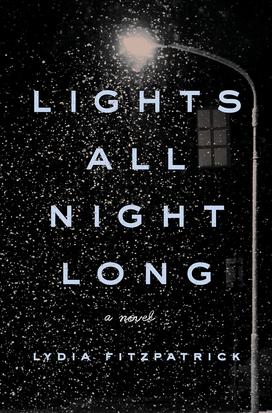Lydia Fitzpatrick ’04 Illuminates Family Ties in “Lights All Night Long”

The author: Lydia Fitzpatrick ’04’s work has appeared in The O. Henry Prize Stories, The Best American Mystery Stories, One Story, Glimmer Train, and elsewhere. After graduating from Princeton, she received an MFA from the University of Michigan and fellowships from Stanford University and the University of Wisconsin-Madison. She lives in Los Angeles with her husband and two daughters. Lights All Night Long is her debut novel.

Behind them was a row of baggage carousels, but only one was moving. Ilya stood by it and waited for his army duffel to emerge. The bag had been Vladimir’s. It was the one Ilya and his mother had brought to the clinic, stuffed with gauze and ointment and a plastic bedpan. Now everything Ilya owned was inside—his clothes, a book of English idioms, his Learn English: The Adventures of Michael & Stephanie tapes, and his tape player. The duffel was half empty. He’d told Maria Mikhailovna that everything inside was worthless, but still she’d written his name on a baggage tag in the same careful letters that she used to correct his translations. Then she’d swaddled it in plastic wrap, murmuring about what thieves the baggage handlers were, about how Leshukonskoye was bad, but Moscow was worse, and who knew about America. When the bag finally circled, the plastic wrap was in tatters, clinging to the old hammer-and-sickle pins that Vladimir had stuck in the canvas. Ilya almost smiled, wondering what, if anything, they’d bothered to steal. More likely they’d looked inside and known instantly that he was too poor to steal from.
Ilya headed for the bathroom. He had to walk by the host family again, and he allowed himself a longer look this time. Maria Mikhailovna had told him that they had three daughters, and all winter he had imagined them: three girls, each more beautiful than the last, like in a fable. But there were only two girls, knobby and prepubescent, with long, lank hair and rabbit eyes. The man was tall, the woman short, and they both had bodies like matryoshka dolls, like all of their weight had sunk into their hips and asses. They weren’t fit. They weren’t tan. They could have been Russian.
Reviews: “This vivid coming-of-age novel spools out an engrossing mystery amid a tender story about family ties and adopted homes.” — Esquire











No responses yet